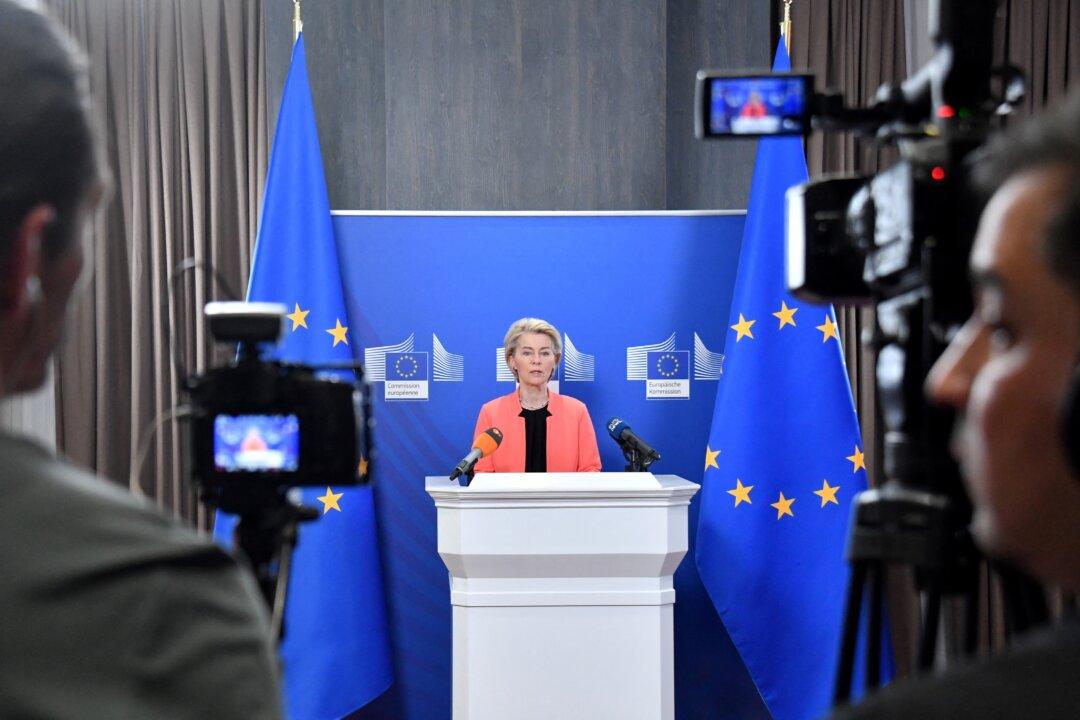Europe must make radical policy changes, failing which, more than $100 billion in funding for pharmaceutical research, development, and manufacturing could move to the United States, warned the European Federation of Pharmaceutical Industries and Associations (EFPIA).
A survey of 18 EFPIA member companies conducted last week found that up to 85 percent of capital expenditure investments worth 50.6 billion euros ($56 billion) and as much as 50 percent of R&D expenditure valued at 52.6 billion euros ($58 billion) were “potentially at risk” of shifting to the United States, the trade group said in an April 8 statement directed toward European Commission President Ursula von der Leyen.





